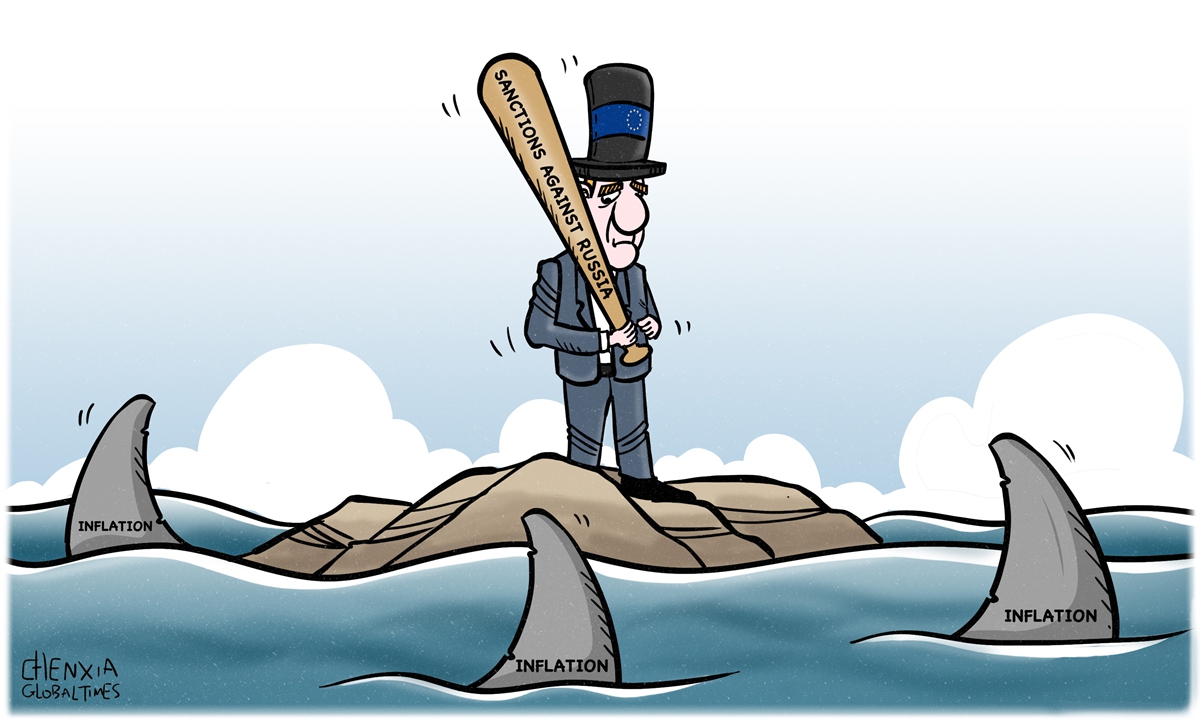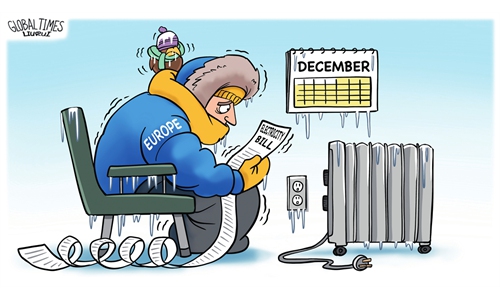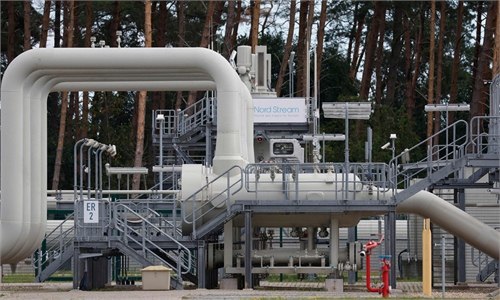
Illustration: Chen Xia/GT
Since the start of the Russian-Ukrainian war, the European Union, fully aligned with the US, has adopted seven packages of sanctions against Moscow with the declared aim of weakening its economy and depleting its strength.To date, however, many of these sanctions have contributed, directly or indirectly, to fueling and aggravating an unprecedented inflationary crisis in Europe, while causing less-than-expected damage to the Russian economy.
If the Kremlin has suffered financially, in Europe, and in particular in Italy and Germany, two of the countries most dependent on supplies of Russian gas, the increase in the consumer price index on essential goods has mainly affected the most vulnerable members of the society and the middle class.
The inflation increase began already in the second half of 2021. The clash between Western countries and Russia, however, has removed any possibility that the inflation spiral could end naturally in the course of 2022 or 2023.
The possible measures announced by the EU members' governments leave little space for imagination: rationing of gas supplies; decrease of electricity supplies in public spaces and private homes between 8:00 and 19:00; a cap on the extra-profits of energy companies; and the imposition of a price cap at a European level (if it will be possible to obtain). All risk a real disaster that the European population will not be willing to accept lightly. After the first demonstrations in Spain, the Czech Republic and Germany, others are being organized and the European autumn could become socially and politically destabilizing.
Putting a "gas price cap" seems utopian at the moment, both because a European agreement is not found, and because Russian President Putin has already made it clear that he is ready to cut supplies, in case the 27 EU countries agree to lower the price established in the contracts prior to the start of the war in Ukraine.
The impulsiveness with which Ursula Von der Leyen and her Commission are dealing with the situation demonstrates an irrefutable fact: Russian gas is irreplaceable for the EU market. If diversifying suppliers was a key strategy until the beginning of this year, today suddenly reducing the supply from Gazprom means putting hundreds of thousands of companies and millions of jobs at risk.
In Italy, the worst forecast comes from Confartigianato, which assumes a real "massacre of companies." On September 9, the president Marco Granelli stated that "expensive energy puts 881,264 micro and small enterprises with 3,529,000 employees at risk, equal to 20.6 percent of the employment of the Italian business system," due to the increasingly vast impact of gas and electricity prices on companies in 43 sectors."
Other trade organizations have also provided alarming statistics, such as Anima Confindustria, the association that gathers numerous mechanical companies, and Confcommercio, which gathers over 700,000 Italian companies and stressed that "the rush of energy and an imminent inflation at 8 percent … puts about 120 thousand companies, in the service sector, and 370 thousand jobs at risk." These are just a few dramatic numbers among many punctual forecasts provided by various exponents of the manufacturing world.
The National Plan for the Containment of Natural Gas Consumption implemented by the Italian Ministry of Ecological Transition (MITE) aims to the "maximization of electricity production from plants that use fuels other than gas (coal, fuel oil and bioliquids)."
It estimates that this maximization in existing plants (coal and oil) "would contribute, August 2022-March 2023, to a reduction in gas consumption of approximately 1.8 billion cubic meters." Six coal-fired and one oil-fired power plants will thus be operational in areas already highly compromised from an environmental point of view, some of which were affected by old disputes between citizens, institutions and companies.
Are we abandoning the energy transition and international agreements? How long will European strategic errors last to please political choices that are antithetical to our interests?
The disaster had been announced by various analysts and will add to the dramatic situation of a conflict over which the European authorities have not been able to build any serious channel of dialogue in order to reach real compromises in the interest of the whole continent. On the contrary, shipments of arms continue to be planned in a disastrous logic of direct confrontation with Russia.
The author is associate professor of International Studies at CFAU, Beijing, teaching also at the International Institute Lorenzo de' Medici, Florence. Follow him on twitter @fabiomassimos. opinion@globaltimes.com.cn


